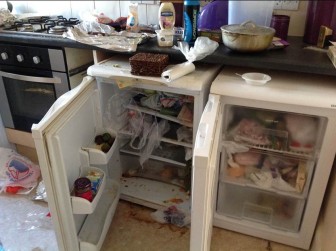Firstly, you need to be sure that any proposed claim is justified. You will need to check the tenancy agreement to ensure that it places an obligation on the tenant to do or not do something. If the tenant has breached an obligation, then make sure that you have evidence to support this claim, (such as a detailed written check-in report showing the condition of the property and its contents at the start of the tenancy and a detailed written check-out report to record the condition of the property at the end of the tenancy). You then need to be satisfied that the landlord has suffered a financial loss as a result of the breach and lastly, check that the deposit use clause allows the deposit to be used for the proposed deduction.
Once satisfied that a proposed deduction is justified, it is then just as important that you present the proposed deduction to the tenant in a clear and succinct way and demonstrate that the claim is both fair and reasonable and that you are claiming the most appropriate remedy. Use our TDS Deposit Deductions Template, where appropriate. This is likely to increase the chance of the parties reaching agreement on the proposed deduction(s), as opposed to having to raise or respond to deposit disputes and the need for alternative dispute resolution.
If the adjudicator is satisfied that a proposed deduction has been evidenced as justified, understanding the likely considerations made by an adjudicator and the remedies available to them, will help if deposit disputes arise.
An adjudicator can make an award to make good i.e., cleaning or repair, for replacement or a compensatory award. An award to make good is a more likely award where replacement cannot be justified. An award for replacement will be considered only when an item is so severely and extensively damaged that it is beyond economic repair or its condition makes it unusable. Where an items value is reduced or its lifespan shortened, a compensatory award is likely to be appropriate. The adjudicator will then consider factors such as fair wear and tear and betterment.
A tenant is obliged to return a property and its contents in the same condition and standard of cleanliness as at the start of the tenancy. By making sure that you show that you are not expecting a property or its contents to be returned in a better condition than at the start of a tenancy; that you are not seeking to profit from a claim and that you have made an allowance for the length of the tenancy, the number and ages of the occupiers, the condition, age and cost of items at the start of the tenancy; the reasonable usage of the item claimed and the average useful lifespan of the item, the more chance that a tenant will find the proposed deduction fair and reasonable.
This article coupled with the use of the Deposit Deductions Template and our Guide to Product Lifespans, highlights the importance of ensuring proposed deposit deductions are fair and reasonable to encourage early resolution.
If you are interested in further guidance relating to deposit disputes, visit the Information Lounge at TDS to browse further guides.
Sandy Bastin is head of dispute resolution at TDS.



Our platform, The Depositary, which exclusively partners with TDS embraces all of these elements. If used correctly, all proposed deductions are contractually, factually and evidence-based. This approach saw over 70% of all proposed deduction in 2020 submitted on our platform agreed by Tenants without any form of renegotiation. Those rare tenancies that did result in a Dispute being raised/filed were managed with ease as our platform creates the TDS Dispute file in as little as 2 mouse-clicks avoid the manual submission of all evidence and ‘conversations’ on the matters to date being collated. Feedback from Tenants to date has been fantastic.
You must be logged in to like or dislike this comments.
Click to login
Don't have an account? Click here to register
It also helps to carry out periodic inspections and document issues that are a breach of the tenancy agreement and an agreed action plan with the tenant at the inspection. Often resolves issues that are left to get worse and invariably more costly for tenant to address before handing the property back or taking the easy option of doing a runner and the deposit not covering the total bills. It also puts the tenant squarely in the frame for negligence during a claim.
Get rid of “dilapidation deposit” and replace with “security deposit”, stipulating it also covers rent arrears in the tenancy agreement or you may have a fight on your hands.
You must be logged in to like or dislike this comments.
Click to login
Don't have an account? Click here to register